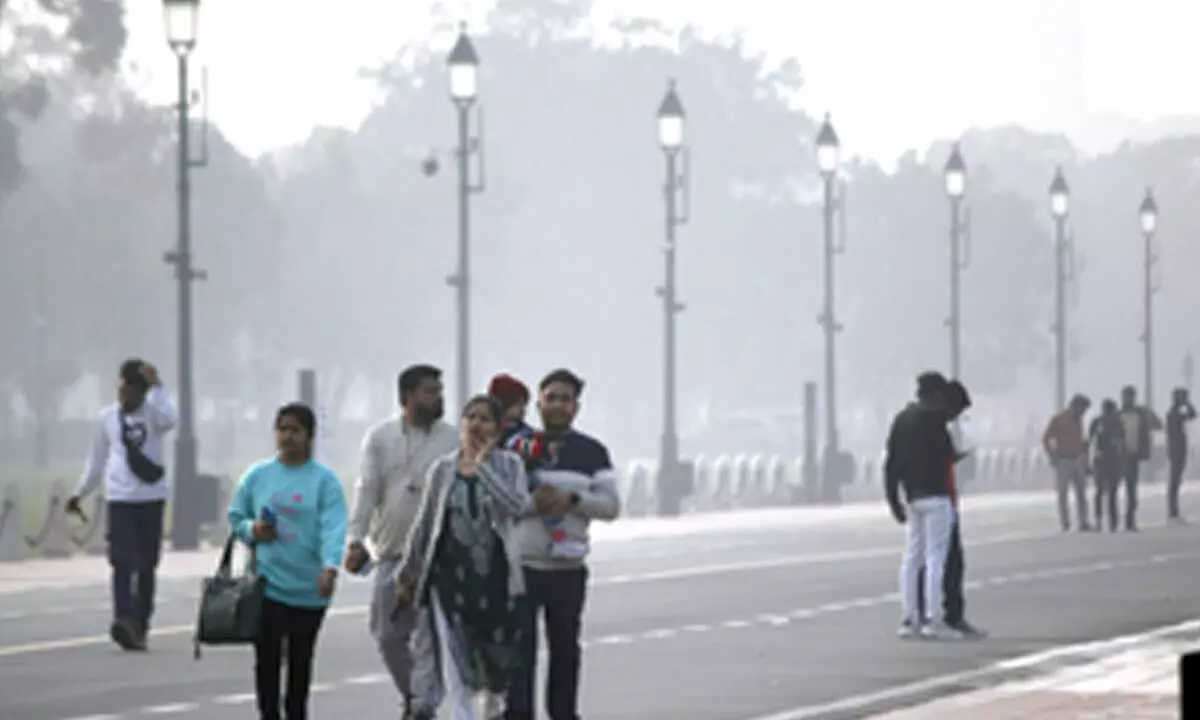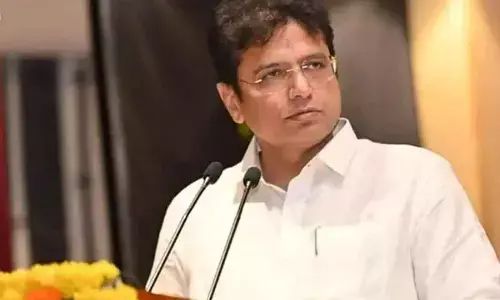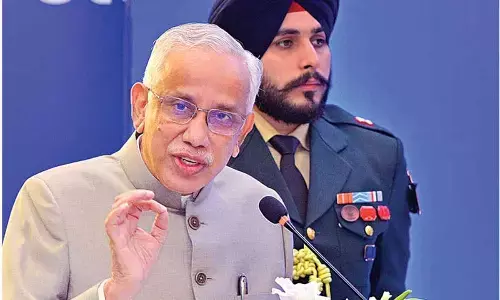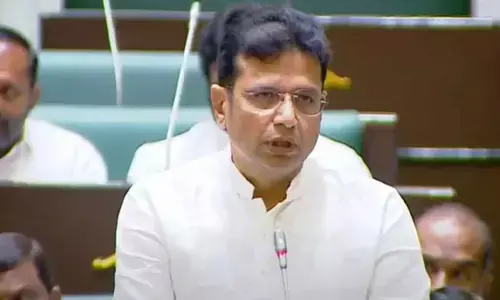Delhi's poor air quality spikes respiratory, cardiac problems: Doctors
Share :

Even as the national Capital’s air quality continues to dip, doctors on Thursday reported a rise in respiratory and cardiac issues.
New Delhi: Even as the national Capital’s air quality continues to dip, doctors on Thursday reported a rise in respiratory and cardiac issues.
As per data by the Central Pollution Control Board (CPCB), Delhi's overall Air Quality Index (AQI) showed no sign of improvement as it was recorded at 294 on Thursday at 9 am. The AQI was 341 on Wednesday and 342 a day earlier.
“We have noticed a significant increase in the number of patients seeking medical attention for various health issues, ranging from respiratory problems to cardiac conditions. Many individuals are experiencing worsened symptoms of respiratory ailments such as asthma, persistent cough, colds, and viral infections, including cases of H1N1,” Dr. Sushila Kataria, Senior Director, Internal Medicine, Medanta, Gurugram, told IANS.
“The primary contributing factor to these health issues is the presence of smog, which directly irritates the lungs and throat, particularly affecting those with pre-existing respiratory conditions,” she explained.
A recent analysis done by the Centre for Research on Energy and Clean Air (CREA) showed that Delhi was ranked first on the list of the country's most polluted cities in January.
Of the 254 cities, Delhi's pollution levels were recorded at the highest with the average PM2.5 concentration at 206 micrograms per cubic metre.
The city exceeded the National Ambient Air Quality Standards (NAAQS) every day of the month.
“In the face of escalating air pollution, especially evident in cities like Delhi, the impact on respiratory health, is significant. People suffering from asthma as well as COPD (Chronic Obstructive Pulmonary disease) -- both chronic respiratory ailments -- experience considerable aggravation due to air pollutants, resulting in symptoms like shortness of breath and exacerbations. Therefore taking precautionary measures becomes paramount,” said Dr Anshum Aneja Arora, a Delhi-based Pulmonologist.
Dr. Puneet Khanna, HOD and Consultant Respiratory Medicine, Manipal Hospital, Dwarka told IANS that children are also getting mild respiratory tract infections, and are also coming with lots of complaints of coughing, sneezing, and cold.
“The major complaints are upper airway conditions, nose blockage, coughing, wheezing, breathlessness, and a sore throat. Sometimes it is accompanied by chest pain and fever, but most of these symptoms are mild and self-limiting, and usually they recover after three to five days of medication,” he said.
According to the Air Quality Early Warning System for Delhi, the air quality is likely to remain "very poor" from February 15-17.
The outlook for subsequent six days from February 17 is that the air quality is likely to be "poor."
Dr Anshum said utilising masks to reduce inhalation of pollutants is a simple yet effective practice.
The doctor stressed on adequate hydration to counteract air pollution-induced dehydration which can cause the lining of the airways and sinuses to become dry, causing asthma symptoms or other symptoms like headache and nausea.















